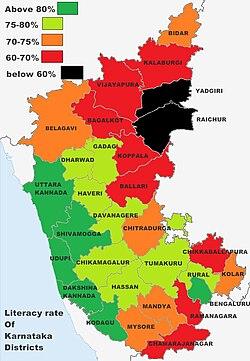Transforming Karnataka’s Urban Landscape: Elevated Corridor and Waste Management Overhaul
Karnataka is embarking on a transformative journey to upgrade its urban infrastructure and environmental health. Deputy Chief Minister D.K. Shivakumar recently revealed plans for a 114-kilometer elevated corridor designed to ease traffic snarls in critical urban zones. Complementing this, the government has committed an impressive Rs 4,000 crore towards revamping waste management systems statewide. These initiatives reflect a strategic response to the mounting pressures of rapid urbanization, aiming not only to streamline transportation but also to foster sustainable living conditions for Karnataka’s expanding population.
Elevated Corridor Set to Redefine Urban Mobility
The proposed elevated corridor represents one of the most ambitious infrastructure projects in Karnataka’s recent history. Spanning 114 kilometers, this corridor will connect major metropolitan centers, significantly reducing travel times and enhancing commuter convenience.
- Integrated Connectivity: The route will seamlessly link key commercial and residential districts, facilitating smoother transit across cities.
- Time Efficiency: Commuters can anticipate substantial reductions in daily travel durations—potentially cutting peak hour congestion by up to 40%, based on similar projects nationwide.
- Eco-Conscious Design: Incorporating green construction techniques such as solar-powered lighting and rainwater harvesting systems aims at minimizing environmental footprints throughout the project lifecycle.
This elevated corridor is expected not only to improve traffic flow but also stimulate economic activity by enhancing access between industrial hubs and residential areas.
Comprehensive Rs 4,000 Crore Strategy for Waste Management Revitalization
The state government’s commitment extends beyond transport with a robust Rs 4,000 crore investment targeting waste management reforms—a sector critical for public health and ecological balance amid growing urban populations. This initiative focuses on modernizing waste handling processes while promoting community participation through education and technology integration.
- Source-Level Segregation: Emphasizing household-level sorting of biodegradable and non-biodegradable waste aims at reducing landfill dependency by over 50% within five years.
- Decentralized Processing Units: Establishment of localized treatment plants will enable faster processing cycles while encouraging local employment opportunities in green sectors.
- Civic Engagement Programs: Awareness campaigns leveraging social media platforms alongside traditional outreach are designed to instill responsible disposal habits among citizens from all demographics.
- Partnerships with Innovators: Collaborations with startups specializing in AI-driven waste analytics promise enhanced efficiency through predictive maintenance of collection routes and optimized resource allocation.
| Component | Total Budget (Rs Crores) | Main Objectives |
|---|---|---|
| ELEVATED CORRIDOR PROJECT | TBD* | Smooth Traffic Flow & Connectivity Enhancement |
| MUNICIPAL WASTE MANAGEMENT REVAMP | 4,000 | Sustainable Sanitation & Recycling Infrastructure |
Allocating Resources for Sustainable Impact: Financial Breakdown of Waste Initiative
The financial blueprint underpinning the waste management overhaul delineates targeted investments across multiple facets essential for long-term success:
| Sector Focus Area | Allocated Funds (Rs Crores) |
|---|---|
| Infrastructure Expansion (Processing Plants & Equipment) | 1,500 |
| tr > |
